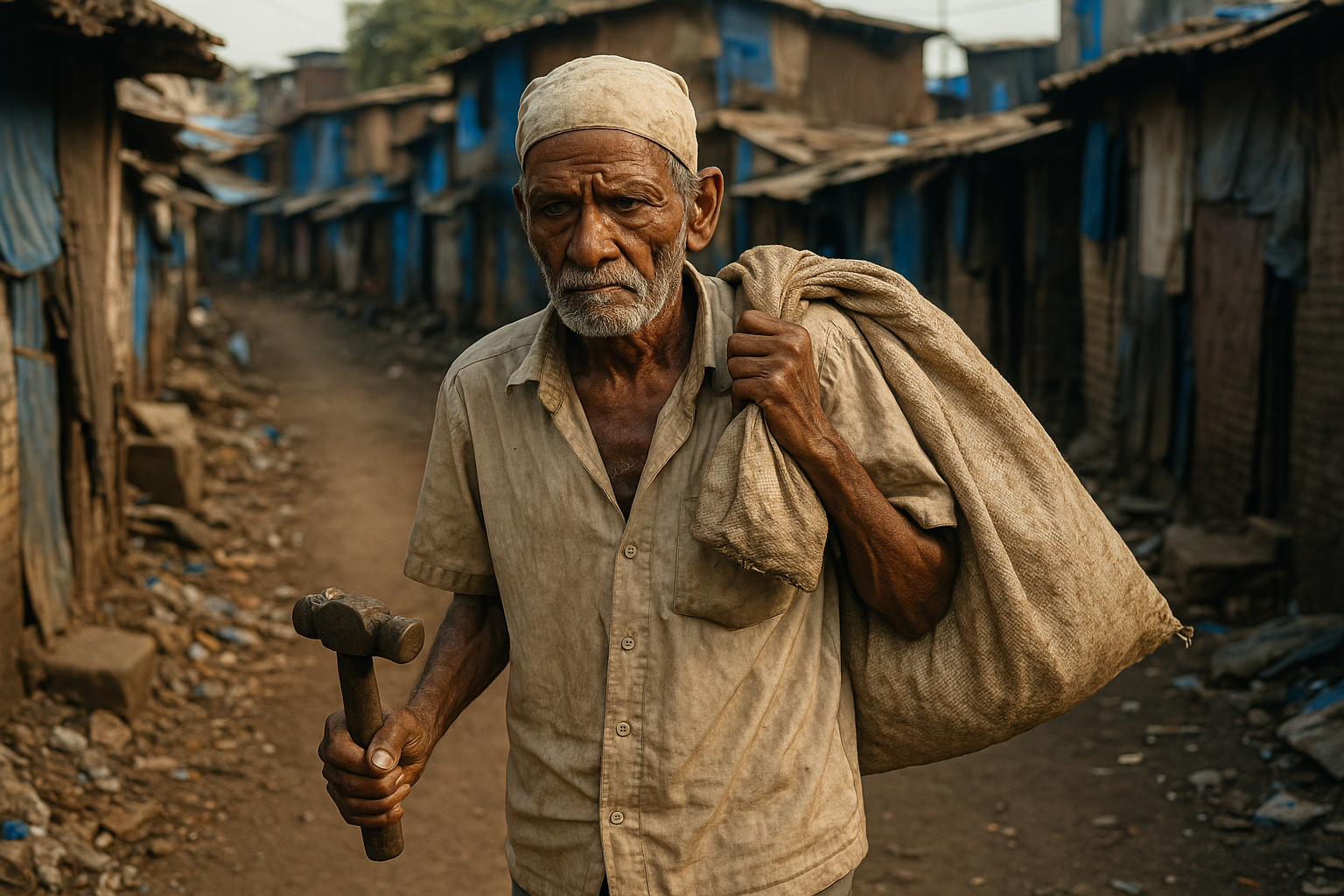"Challenges Faced by Aging Laborers in Mumbai: The Impact of No Pension Benefits"
"Challenges Faced by Aging Laborers in Mumbai: The Impact of No Pension Benefits"
Millions of working-class people operate in the informal sector without much social security. In fact, about 82 percent of the Indian workforce has no formal job regulations. Many of the day labourers wake up before dawn, walking through the city or in the slums with only hope to find job offers for a day. No pension benefits or medical benefits are given to them; an accident or illness will wipe out the saving for a lifetime.
The slum life is unforgiving. Even sanitation and water are questionable: for instance, about 78% of community toilets in Mumbai slums do not have running water. Most of these slum pockets lie on a kind of “periphery of the city’s consciousness,” leaving such workers and their families mostly invisible to policy makers. The old man in the picture is one such unseen builder – hammer and sack in tow from one site to another seeking hand-to-mouth work.
One empowered perspective comes from a 62-year-old mill worker, who said, “Our sweat and blood have gone into the making of this city.” It seems to echo the story that the picture tells: these buildings and roads of Mumbai have been cemented through decades of hard and cold labour. Now, however, the old man stands in the slums, not knowing where his next meal or day work will be. Every wrinkle and callus on the hands tells of years of contribution and dignity that every worker ought to be entitled to.
Creating a Strong Brief
• Honor for
His Contribution: He created this city for decades. Begin with a recognition
that “he put his sweat and blood into making this city.” This
establishes that strong emotional tone: he deserves respect for what he has
already given.
• Highlighting
Injustice: Show the contrast between his forcing of hard labour and hard times,
using a phrase like “After decades of labour, he deserves dignity, not
neglect.” Mention how he now walks the slums with a hammer in his
hand—ready to work—and viewers will witness his uncertainty and pride.
• Invoke
Empathy and Action: End with a heartfelt appeal/question enticing empathy
(“Will we turn our backs on the hands that built our city?”). Use
high-speed yet urgent hashtags to carry on the conversation: e.g., #Compassion
to inspire empathy and #MakeADifference to call for action. These tags anchor
the story holder to the environment of justice and kindness.



















